Irish ancestry: How to trace Irish ancestry (original) (raw)
Traditionally, Irish ancestry research was described as difficult because the Public Record Office of Ireland in Dublin was destroyed in a fire during the Irish Civil War and hundreds of years of Irish records were lost. Fortunately, the Beyond 2022 project has now launched, with a digital replica of the Public Record Office and the missing records. You can also find plenty of key Irish ancestry records on these websites.
Irish ancestry: The best websites
1. Irish Genealogy
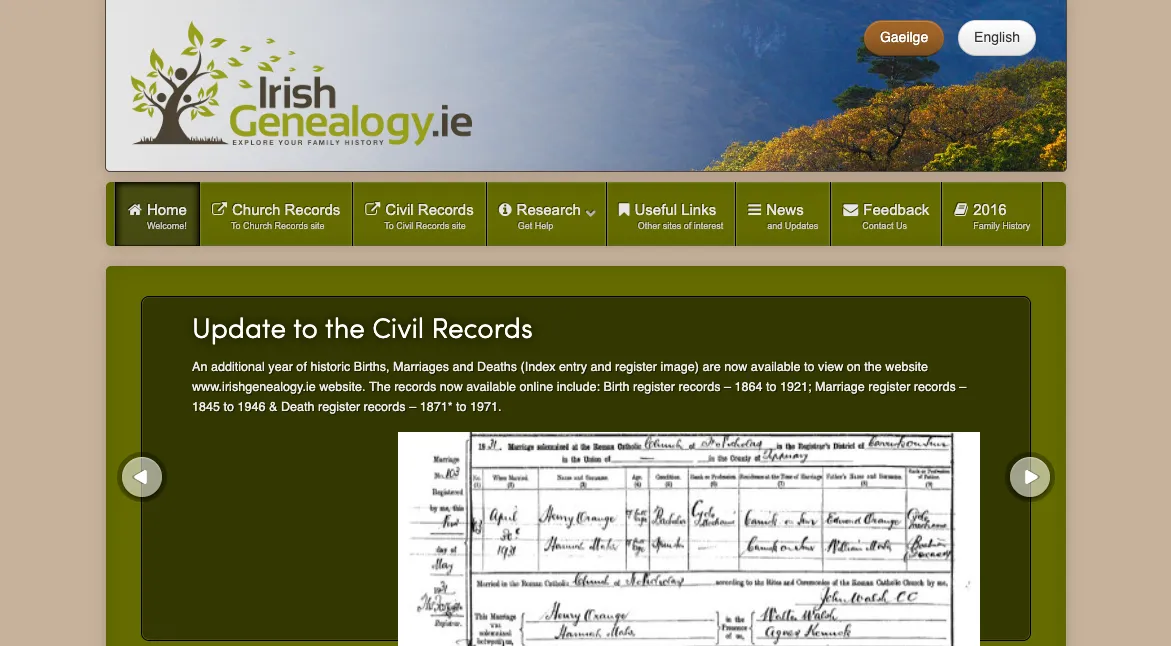
The best place to start with tracing your Irish ancestry is searching Irish Genealogy, where you can view Irish civil records for free. At present there are indexes to births (1864–1922), marriages (1845–1947) and deaths (1871-1972). There are also some church records, including both Catholic and Church of Ireland registers from County Carlow, Cork and Ross, Dublin and County Kerry.
2. National Archives of Ireland
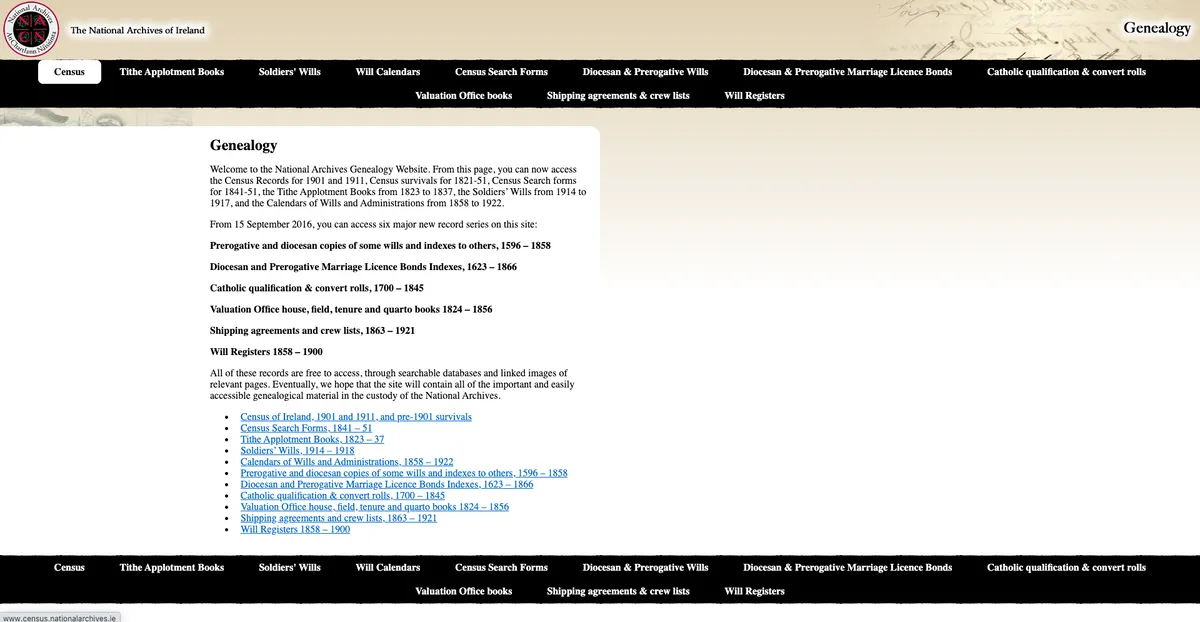
The National Archives of Ireland's genealogy portal is one of the key websites for tracing Irish ancestry. It offers free access to the surviving census fragments from 1901/1911, as well as substitute sources. You can search raw census data, then view PDF copies of the original documents. Other important collections available free of charge include tithe applotment books (1823–1837), soldiers’ wills (1914–1918), diocesan and prerogative marriage licence bonds indexes (1623–1866), shipping agreements and crew lists (1863–1921), and Irish wills. The site also offers insights into life in 20th century Ireland divided into areas and then chapters on topics such as 'Sporting and cultural life' or 'Poverty and health' with accompanying images from the archives.
3. National Library of Ireland
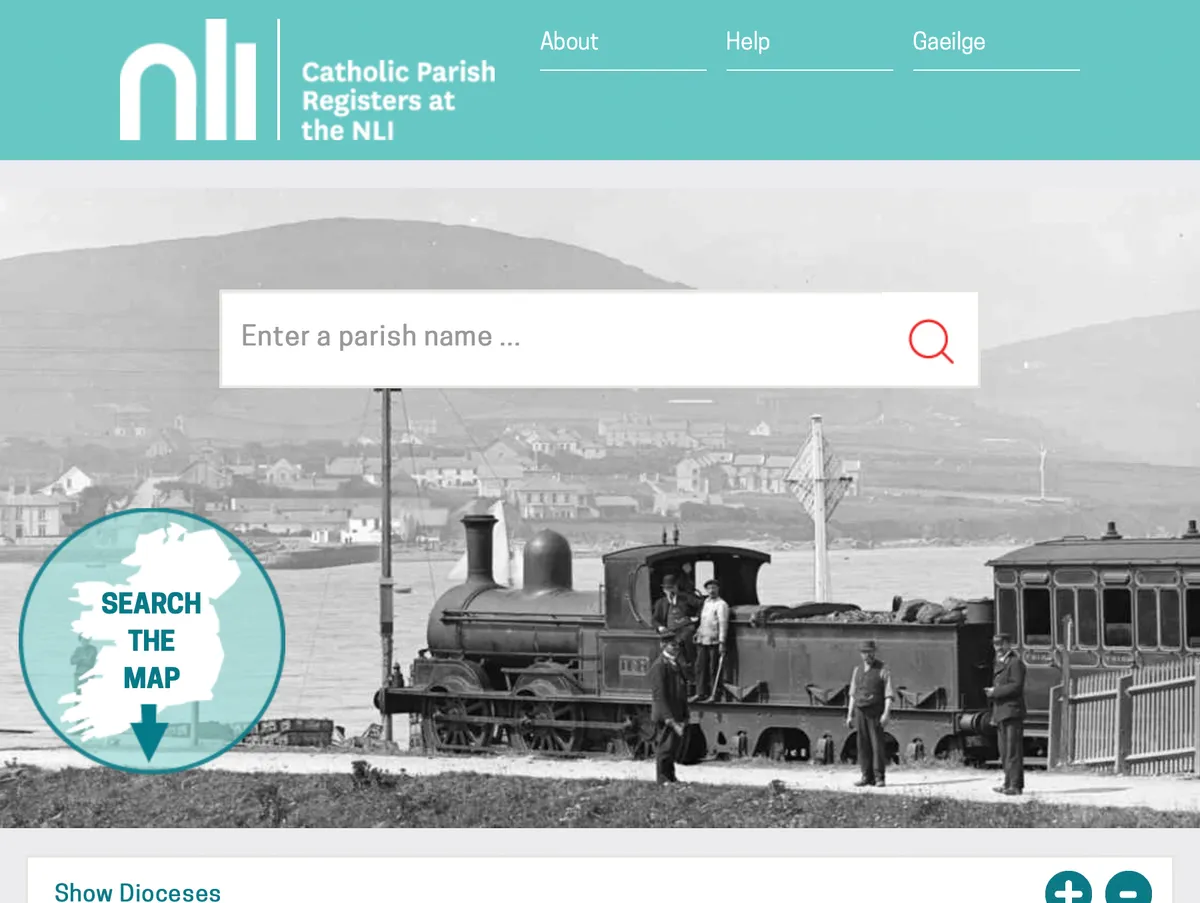
This image-only Irish ancestry service enables you to browse digitised microfilms of Catholic parish registers covering most parishes across the island of Ireland up to 1880. Just enter the name of a specific parish in the search box, or choose between ‘Show Counties’ and ‘Show Dioceses’ on the map then drill down to a particular parish, before accessing tens or even hundreds of images of specific microfilms. This can be time-consuming if you’re unsure of the details, so you may need to seek out an index first. There are indexes available on Findmypast and Ancestry. The National Library of Ireland parent website has lots of guidance and research tools, and you can browse some highlights here.
4. Irish Ancestors

Try a simple surname search on this website from Irish ancestry expert John Grenham and you are presented with a map showing numbers and locations of households in the 1850s, as well as heads of households in the 1901 and 1911 census. Alternatively, you can use interactive maps to drill down by county and then parish to various types of information, linking to external sources.
5. Irish War Memorials
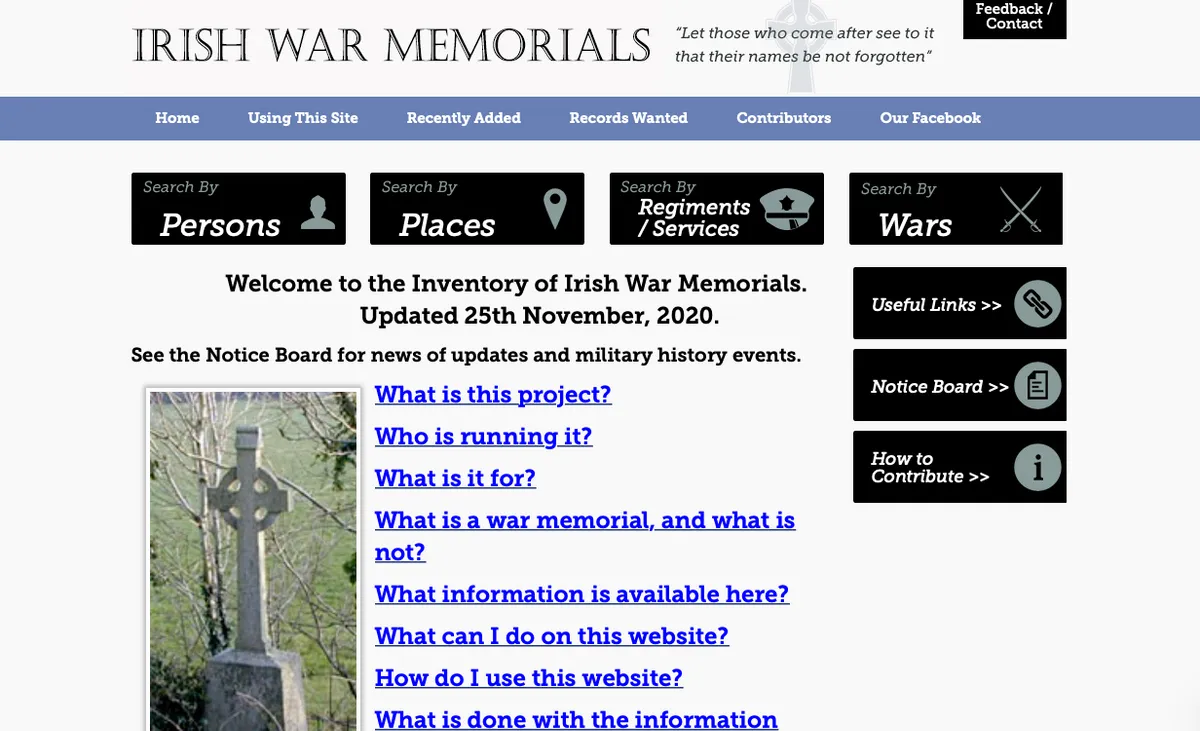
If your Irish ancestors were killed while serving in the army, here you can explore a growing database of cross-conflict memorials in the Republic of Ireland and Northern Ireland. They also include memorials from the First World War and (for Northern Ireland) the Second World War. Each memorial is accompanied by details of its exact location and images, from where you can either search the names recorded, or download a PDF containing a full transcription. The website covers all kinds of memorials, from free-standing monuments such as crosses, obelisks and statues, to plaques and even paper records if they are on display, making it extremely useful even though graves are not included.
6. Expert’s choice: RootsIreland
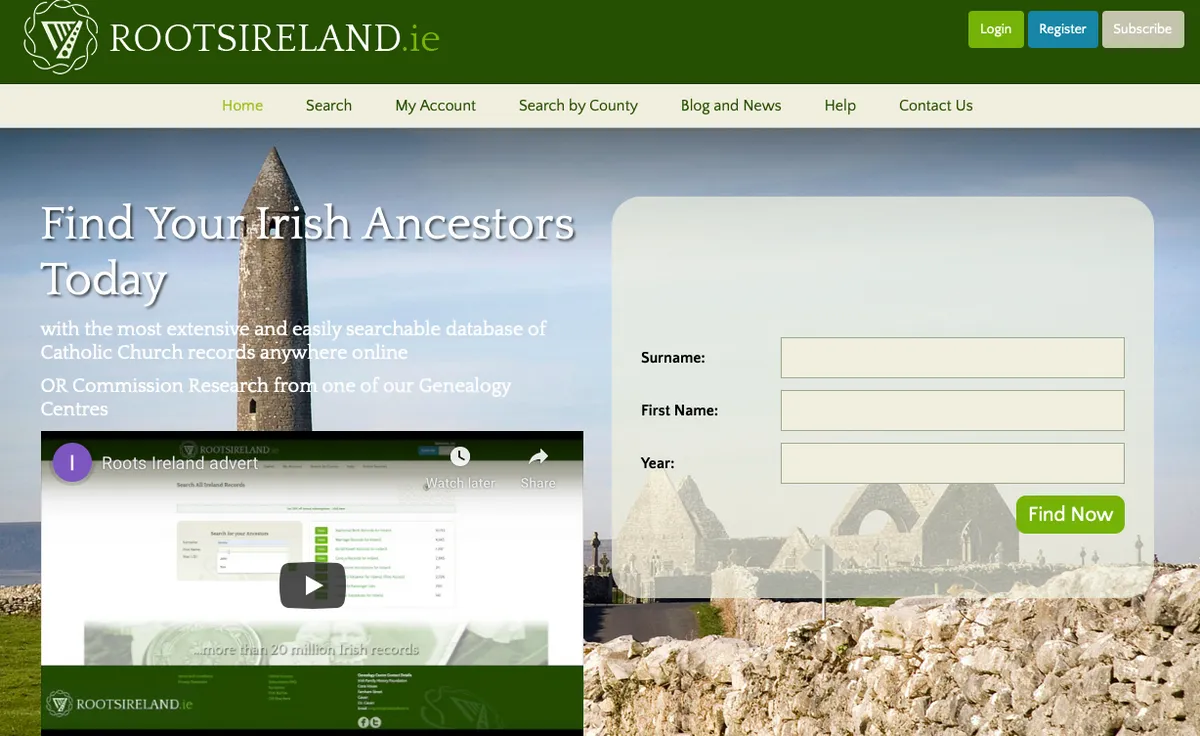
Chosen by John Grenham, author of Tracing Your Irish Ancestors, 5th Edition:
"RootsIreland is the website of the Irish Family History Foundation (IFHF), the umbrella body for Irish ancestry centres that began transcribing parish registers back in the 1980s. These two factors – the IFHF’s highly decentralised structure and the organisation’s origins before the start of the web – have both left their mark.
"On the positive side, RootsIreland’s transcripts of church registers come from the original records held locally, not the very poor microfilms used by Ancestry and Findmypast. That head start makes them orders of magnitude more accurate, even allowing for sometimes dodgy transcription. The site’s surname variants listing is also much better, tailored to the mind-bending weirdness of Irish surnames. And its search interface (once you get down to county level) is spectacularly flexible, allowing you to base Irish ancestry research on anything that appears in state or church birth, marriage and death records including godparents, witnesses, place names and mother’s forename. Many of the website’s transcripts are also much later than those available elsewhere, in some cases reaching well into the 1920s.
"On the negative side, the site remains transcript-only, far off the now gold-standard transcript-with-image. The local centres’ independence of each other has also left coverage of some areas patchy. In addition, the site is not good at listing what’s missing. Membership is also expensive, currently costing £198 for a year (or £13 for a day). But as long as you use it carefully, it’s the only absolutely essential Irish ancestry site."
Irish ancestry: More websites
7. DIPPAM
Many of our Irish ancestors emigrated to Britain, the USA, Canada, Australia and many other destinations in search of a better life. The website Documenting Ireland: Parliament, People and Migration (DIPPAM) includes an ‘Irish Emigration Database’ and the oral archive and database ‘Voices of Migration and Return’.
8. Emerald Ancestors
This commercial Irish ancestry website boasts over 1.5 million genealogy records for Northern Ireland. Emerald Ancestors also has a useful tool that you can use to identify individual townlands.
9. Griffith’s Valuation
Griffith’s Valuation was compiled between 1848 and 1864 to determine liability for paying rates to support the poor and destitute within each of Ireland’s Poor Law unions. It’s the closest thing to a census available for 19th century Ireland, with detailed information about where our ancestors lived.
10. IMC Digital Editions
Explore the results of the Irish Manuscripts Commission’s digitisation programme.
11. Irish Family History Society
This Irish ancestry group was formed in 1984.
12. Military Archives
This is another good resource for tracing Irish ancestors who served in the army. It’s the official home of the records of the Department of Defence, the Defence Forces and the Army Pensions Board.
13. PRONI
The website of the official repository the Public Record Office of Northern Ireland has all sorts of valuable free search tools including directories, cemetery records and tithes.